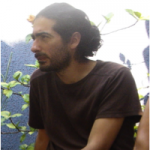Lien vers Pubmed [PMID] – 30503630
Lien DOI – S0010-9452(18)30086-810.1016/j.cortex.2018.03.005
Cortex 2019 09; 118(): 315-326
The development of complex neocortical organisations is thought to result from the interaction of genetic and activity-dependent processes. We propose that a third type of process – mechanical morphogenesis – may also play an important role. We review theoretical and experimental results in physics showing how even homogeneous growth can produce a variety of forms, in particular neocortical folding. The mechanical instabilities that produce these forms induce heterogeneous patterns of stress at the scale of the organ. We review the evidence showing how these stresses can influence cell proliferation, migration and apoptosis, cell differentiation and shape, migration and axonal guidance, and could thus be able to influence regional neocortical identity and connectivity.


